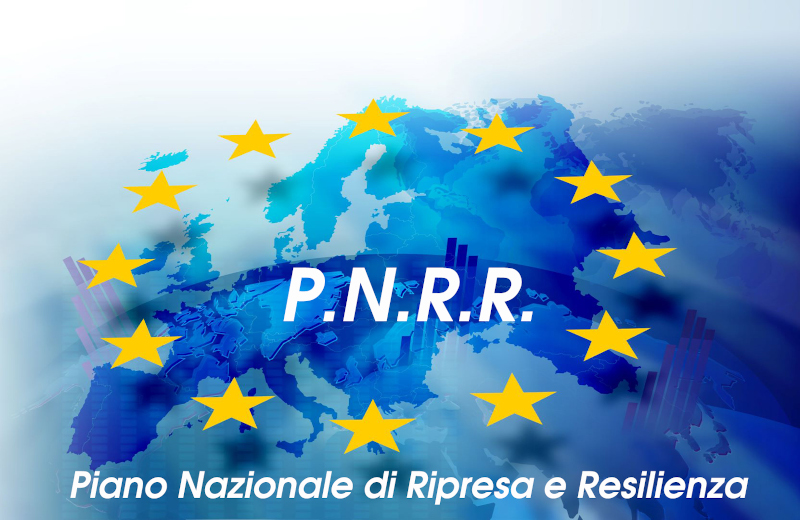In which municipalities will the National Recovery and Resilience Plan (NRRP) encounter major difficulties?
29 May 2023

In Naples and Bari, the number of public administration (PA) employees is half compared to that of Florence and Bologna. In Palermo and Catania, university-educated employees fall short of the national average by 50%.
This is according to a recent study conducted by Professor Gianfranco Viesti and commissioned by the CON IL SUD Foundation on the challenges Italian municipalities face in implementing the reforms and investments adopted with the NRRP. The municipalities of Naples, Brindisi, Taranto, Reggio Calabria, Messina, Catania, and Trapani are in critical condition concerning the projected investments. Among the top 10 municipalities best equipped to implement the plan, not one is from Southern Italy, with Trieste and Trento occupying the top two positions.
Borgomeo: “The study dispels some common misconceptions about the quantity of public administration in the South and confirms, unfortunately, the critical issues about the quality. Action can and must be taken quickly, starting with a real public-private and social collaboration for “public” action in the highest and noblest sense of the term. The Foundation is willing to provide best networking practices and experiences successfully initiated in recent years in the South.”
Effective implementation of the NRRP is crucial and requires immediate and robust support either through new hires or the use of external technical support in the municipalities of Naples, Brindisi, Taranto, Reggio Calabria, Catania, Messina, and Trapani, while closely monitoring any potential difficulties in Bari, Palermo, and Salerno. It is an absolute emergency which must be addressed with the utmost urgency.
These are some of the conclusions in the report titled “In which Italian municipalities will the implementation of NRRP encounter major difficulties?”. The report was commissioned by the CON IL SUD Foundation and was written by Gianfranco Viesti, professor of applied economics at the University of Bari, Aldo Moro.
The study examines the overall dynamics of Italy’s municipal administration over the past 15 years, particularly considering some reviews from the Bank of Italy. From the study, it emerges that the staffing levels of Italian municipalities have reduced by 27% between 2007 and 2020, with the dynamics significantly worse in the South than in the rest of the country, partly due to the misapplication or poor application of municipal funding regulations. The data also shows that public investments in municipalities in the South take longer implementation times, which could be attributed to a relative shortage of qualified personnel—certainly a red flag for NRRP.
However, analysis of large constituencies may conceal various issues in specific contexts. Hence, the study provides new scrutiny based on data from the State General Accounting Office for each of Italy’s 103 medium-to-large municipalities, i.e. those with a population over 60,000. For each municipality, the data is presented on the ratio of municipal employees to the population size as of 2019 and the ratio variation from 2008. For instance, it reveals that the number of employees per capita in the administrations of Naples and Bari is around half that of Florence and Bologna and that the workforce in the municipality of Naples has decreased by more than 50%.
The analysis further shows several possible indicators of “staff quality.” This was done through subgroup breakdown by education, age, and profession. It discloses, for example, that in Palermo and Catania, the percentage of employees with university degrees is less than half the national average; that only 3 out of 100 municipal employees in Catania are under the age of 50; and that the percentage of municipal employees with managerial qualifications is particularly low not only in Catania but also in Syracuse and Lamezia Terme.
This initial information is compiled in a concise index to identify the “degree of difficulty” municipal administrations encounter in fulfilling their responsibilities due to a shortage of quantitative and qualitative staff. The index confirms that, with a few exceptions (Carpi and Imola in Emilia Romagna, Guidonia, Aprilia, and Latina in Lazio), these difficulties are considerably high in some administrations in the South of Italy. In particular, in Campania (Giugliano, Torre del Greco, Castellammare di Stabia, Naples, Caserta, Casoria), Calabria (Catanzaro, Lamezia, Reggio Calabria, Cosenza), Sicily (Catania, Gela, Messina, Trapani, Caltanissetta), Puglia (Foggia, Andria, Taranto, Barletta, Brindisi) and in Matera. Naples and Catania, two of Italy’s biggest cities, find themselves in a highly critical situation. These municipalities face significant challenges in delivering services to the local citizens and building infrastructures because of severe administrative staffing shortages due to a lack of skilled personnel or significant staff reductions.
On the other hand, the 10 municipalities best equipped in terms of staffing, service delivery, and implementation of public investments, starting from “the best,” are ranked in the following order, Trieste, Trento, L’Aquila (considered a singular case due to the earthquake), Reggio Emilia, Padua, Ravenna, Bolzano, Ferrara, Bologna, and Varese.
Lastly, for the 77 medium-to-large municipalities that serve as provincial capitals, the study connects the index to an indicator of intensity (measured in euros per inhabitant) of the investments planned by the NRRP. The purpose is to identify cases where the structural difficulties of the administrations correspond to the extensive implementation responsibilities. It is thus shown that in Naples, Brindisi, Taranto, Reggio Calabria, Messina, Catania, and Trapani, the administrations are in critical condition and with extensive implementation responsibilities, for investments amounting to more than 2.5 billion, in these municipalities alone. The study highlights an absolute need for urgent action to support these administrations in order to ensure the implementation of the planned investments and by that, the entire NRRP.
“The study dispels some common misconceptions about the ‘quantity’ of public administration (PA) in the South and confirms, unfortunately, the critical issues about the ‘quality,’ stresses Carlo Borgomeo, president of the CON IL SUD Foundation. “In recent years, the number of employees in Naples has been reduced by more than 50 %. Serious and very serious issues clearly affect the Southern public administration. Action can and must be taken quickly, starting with a real public-private and social collaboration for ‘public’ action in the highest and noblest sense of the term. The Foundation is willing to provide the best networking practices and experiences that were successfully initiated in recent years in the South through Third Sector organizations and dialogue with public and private institutions: a network of seven thousand organizations that includes the nonprofit sector, public institutions, and businesses.”
Download the study: In which municipalities will the National Recovery and Resilience Plan (NRRP) encounter major difficulties?

